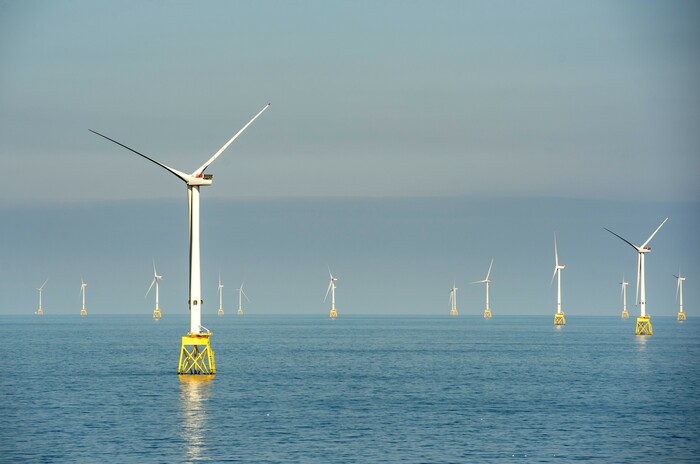Future of Scottish offshore wind facing “watershed moment”, industry chief tells delegates at All-Energy

The offshore wind sector in Scotland is facing a “watershed moment”, according to the Chief Executive of Scottish Renewables, the trade body for Scotland’s renewable energy industry.
Scotland has an offshore wind pipeline worth more than 40GW with five projects consented, eight in planning, and a further 22 under development. This places Scotland in the top ten of global offshore wind markets.
However, industry has warned that major investment decisions expected in the weeks ahead are being undermined by ongoing uncertainty over damaging plans for zonal pricing and how volatile transmission charging will be sustainably reformed.
New reports in recent weeks have revealed:
- Scotland’s offshore wind pipeline is expected to unlock between £29 billion and £35 billion in public value over the next 40 years
- Renewable energy projects account for around £75 billion out of £100 billion in potential total investment value in the Highlands and Islands by 2040
- Reform of Transmission Network Use of System (TNUoS) charges could save consumers £16.2 billion between 2028 to 2050
- Uncertainty caused by zonal pricing would turn a purported £8.9 billion benefit into a £9.6 billion cost for consumers.
The warning from Scottish Renewables comes on the back of news that Ørsted has halted the development of its Hornsea 4 Offshore Wind Farm in England.
Meanwhile, the UK Government is expected to open the Contracts for Difference (CfD) Allocation Round 7 (AR7) for bids soon. CfDs guarantee clean energy generators a set price for their electricity and this year’s auction will be critical for the success of the mission to achieve clean power by 2030.
Speaking at the All-Energy conference in Glasgow today (May 14), Claire Mack, Chief Executive of Scottish Renewables, warned that mounting policy uncertainty is hampering investor confidence across the sector. She said:
“Scotland’s offshore wind potential clearly offers significant benefits for our economy and energy security. It is also clear that the UK Government will fail to meet its clean power objectives if it does not deliver vital Scottish offshore wind projects.
“Whilst green shoots are appearing, we can only drive future growth with a sustainable policy framework that will secure much needed private investment in renewable energy projects. This will give Scottish projects the confidence they need to navigate the increasingly challenging conditions at this watershed moment for our industry.
“To maximise this year's AR7, offshore wind developers in Scotland need immediate certainty over auction parameters, electricity market reform and transmission charging arrangements. The Scottish and UK governments also need to pick up the pace on the delivery of efficient consenting and new grid infrastructure.
“Offshore wind is good for jobs, supply chains and has the potential to make household bills more affordable, so both governments should put their shoulder to the wheel on creating the best possible environment to build these vital projects in Scotland.”
Ends
Notes to editors
- Free to use images of Claire Mack.
- Read the referenced research by BiGGAR Economics, Highlands and Islands Enterprise, Aurora Energy Research and AFRY.